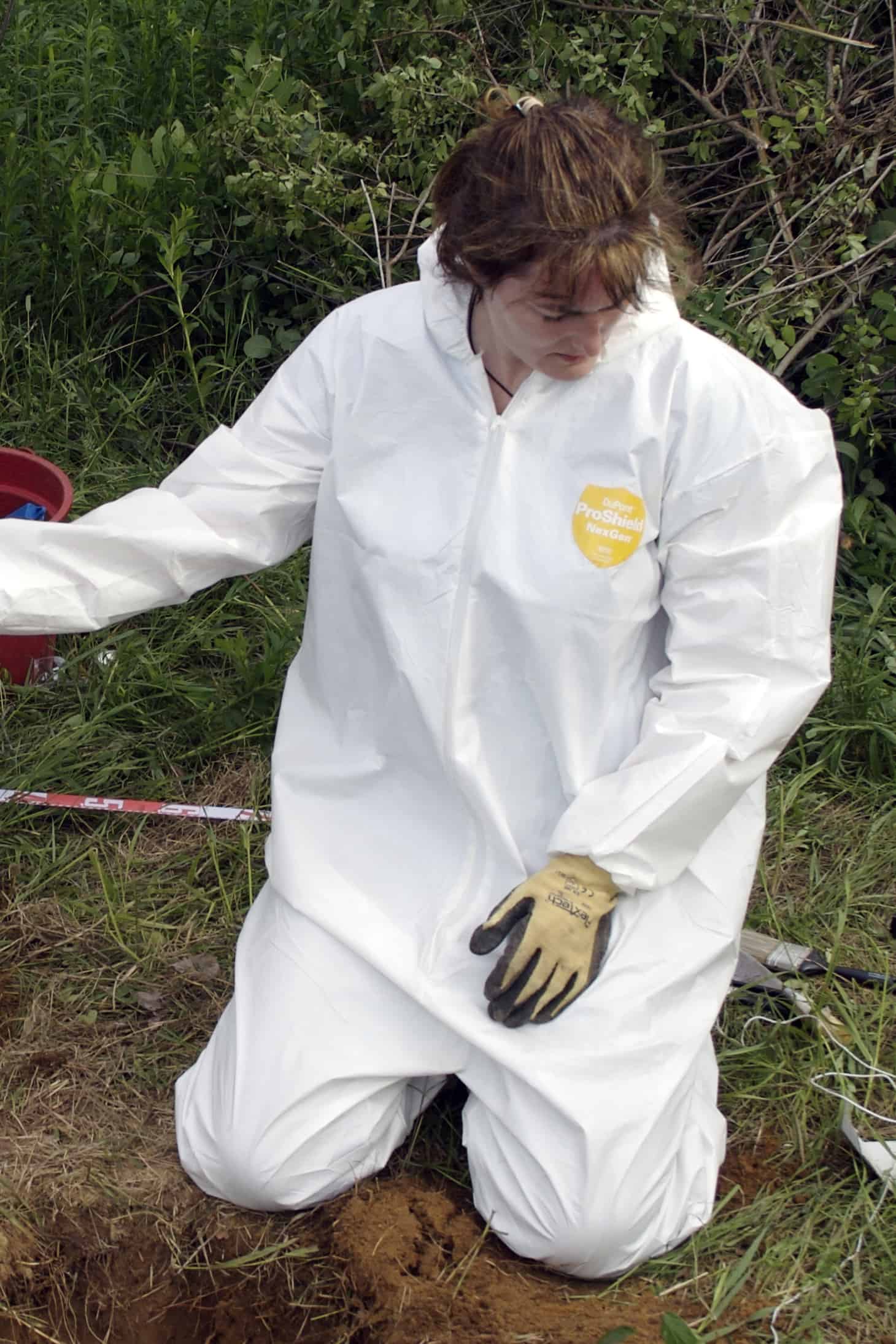In one of the most horrific incidents in Canadian history, dozens of women disappeared in a span of over two decades from Downtown Eastside Vancouver. Several years and a $70 million investigation later, Robert Pickton was charged with the murders of 26 women and convicted of six charges.
The case became the largest serial killer investigation in Canada. In a feat of scale and diligence, investigators and scientists combed through 200,000 DNA samples and 383,000 cubic yards of soil.
One of the forensic anthropologists involved in this groundbreaking investigation was U of T professor Tracy Rogers. As one of the leaders in her field, Rogers examined over 40,000 bones on the Pickton case alone and has also worked on other high-profile cases, such as the disappearance and murder of Tim Bosma.
She serves as a consultant for the Ontario Forensic Pathology Service and assists “the police, coroners, pathologists, and fire marshals to… recover human remains [and] determine who the person was and what happened to her/him.”
Rogers’s career choice is oddly fitting. As a child, she enjoyed every form of mystery story, “from Scooby Doo and Encyclopedia Brown to Nancy Drew.” But she had not always been sure she would pursue forensic anthropology.
“I was not even aware there were career opportunities in forensic science and had never heard of anthropology until my first year at McMaster,” Rogers wrote to . “But after I took my first anthropology class I knew I wanted to work in this field… The first time I assisted [my mentor and Master’s supervisor] Dr. Saunders with a forensic case, I decided to make forensic anthropology my career.”
As a university student, Rogers knew that she wanted to pursue a career in a field that focused on helping people “in a direct and tangible way.” Today, her work provides closure and justice to victims of crime.
“I am most proud of the fact that my work, both cases and research, provides answers for families. People need to know what happened to their loved ones and they need to have them returned home,” she said.
In becoming a professor and forensic anthropologist, Rogers found herself in a niche befitting her interests. “There is always something new to learn and so many amazing people to meet, whether I’m at the university or at a crime scene.”
She advised students today to discover what they want out of life when deciding on a career path.
“Do you want to help people? Do you like to work alone or as part of a team?” she asked. “You may not know exactly what career you are looking for, but know what you want to get out of it and start researching jobs that link your interests with your aptitudes.”
Throughout her life, Rogers has been actively involved in academia, either as a student earning her BA, MA, and PhD, or as a professor teaching the next generation of scientists. Beyond focusing on her interests and aptitudes, Rogers understands and promotes the value of education, even when it does not seem useful.
“Education is never wasted,” Rogers said. “[H]ow could it not be useful to better understand what makes people tick; how the physical world works; how to communicate with others; why people from different cultures will not always see things the way you do; how to break down an argument to evaluate its logical consistency; how to speak another language; what it means to behave ethically; or any number of other valuable pieces of knowledge gained during a degree?”
In today’s world, education and passion never seem to be enough. Especially at a large university like U of T, competition is rampant and the drive for lengthier and increasingly saturated résumés seems endless.
Rogers cautioned against getting caught up in this cycle of competition. “Don’t waste time constantly comparing yourself to others,” she said. “Success, regardless of how you define it, comes from looking forward [to] what is right for you, not sideways at what someone else has accomplished. Celebrate and enjoy your achievements and those of the people around you.”
Rogers has a successful career in a field she loves, and her actions and insights lead young scientists by example. “Take an active role in your education, journey, and life,” she said. “Don’t just let it happen to you.”


